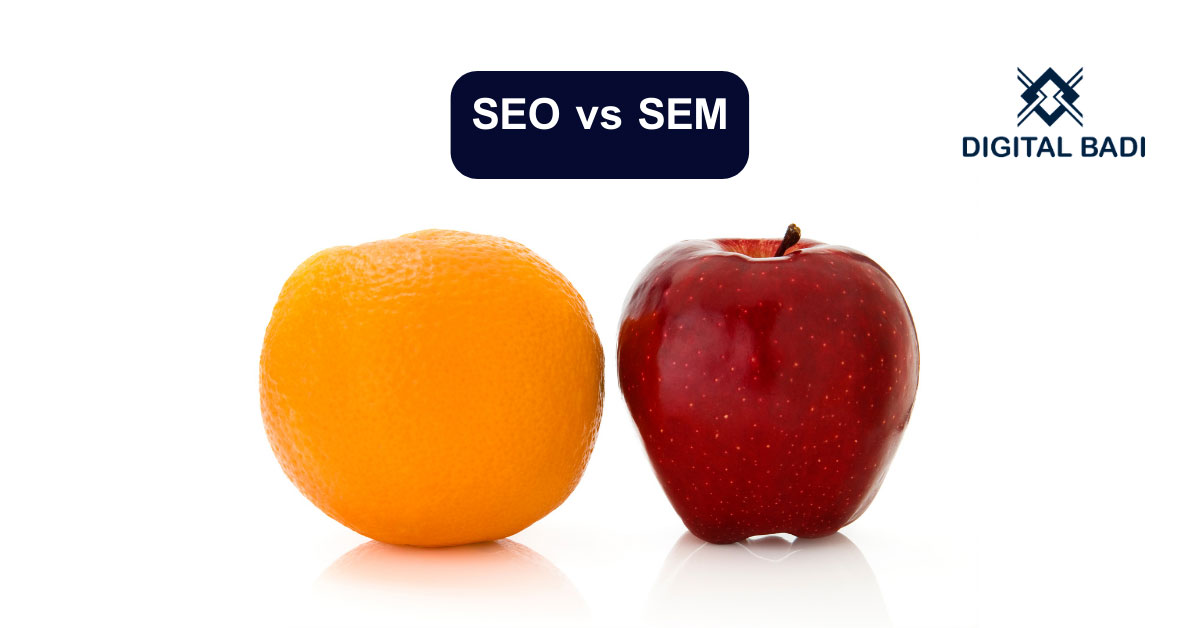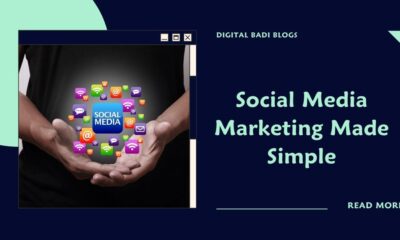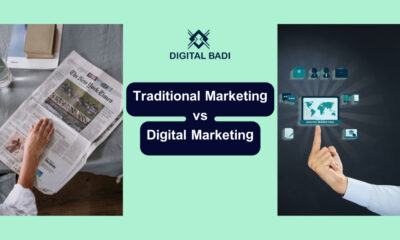Digital Marketing
SEO vs SEM

Table of Contents
SEO vs SEM
Search Engine Optimization and Search Engine Marketing are digital marketing practices to increase brand Visibility rates and conversion rates. Sometimes, the two terms are used interchangeably are, creating confusion.
SEM is the acronym for Search Engine Marketing. It is a technique that uses paid advertisements to increase the visibility of a website in search engines such as Google, Bing, and Yahoo. Companies can also use SEM to increase their online presence and improve their rankings in SERPs. On the other hand, SEO stands for Search Engine Optimization.
It is a technique that improves the ranking of websites in SERPs by optimizing content, keywords, and metadata associated with a website or webpage to make it more relevant to what people are searching for on search engines such as Google.
SEM or Search Engine Marketing refers to paid ads in search engines. In contrast, SEO or Search Engine Optimization refers to the organic optimization of the website for higher website rankings in the Search engines.
- Seo is the practice of optimizing a website to appear higher in SERPS.
- Sem, it involves practicing PPC to get more website traffic.
It is essential to know the difference between Search engine optimization and Search engine Marketing, to implement there into your marketing Strategy Effectively.
SEO is the process of getting a website to rank higher in search engines. It is the process that helps websites get more visitors and make them visible in search results.
They are two types of Seo practices
- On page SEO
- Off-page SEO
1. On Page SEO
The ON-PAGE SEO process consists of six steps:
1.Keyword Research:
This step involves finding the most relevant keywords for your website. It would help if you used different tools like Google Trends, Google Adwords, or Search Console to find out what people are searching for on the internet.
2.Content Optimization:
This step includes creating optimized content for SEO and keyword optimization. To rank well on the SERPs, and it must be readable, too – this will help attract more traffic from search engines and increase your website’s visibility.
3.Link Building:
Link building is a technique that can be used to help your website rank higher in Google. To do this, you need to create backlinks from other websites linking back to your website. Backlinking is one of the essential SEO techniques, and it has been around for a long time. It helps increase the traffic and ranking of a website on search engines by creating links from other websites which are relevant to your content
4.Monitoring
where the activity of web spiders, traffic, search engine rankings, and other metrics are observed for producing reports on which assessment will be performed
5.Assessment
involving checking the summarized effects of the strategy (and its implementation) against the SEO process’s stated targets
6.Maintenance
Where both minor or major problems with the website’s operation are handled as they arise (e.g., new content that needs optimization according to the strategy)
2. Off-Page SEO
Social media marketing
is a type of digital marketing that promotes products or services by engaging customers on social media platforms.
Off-page SEO is when you are not trying to rank for a specific keyword on Google, but you are trying to increase your website’s traffic. This can be achieved through social media strategies such as posting content on your blog or website and sharing it with other social media platforms.
Social bookmarking
is a new way of marketing that involves promoting a product or service on social media. It is an effective way to increase brand awareness and drive traffic to your website.
The use of social bookmarking has increased in recent years due to the rise in popularity of social media platforms such as Facebook, Twitter, and Instagram. It has also been used by marketers looking for an alternative to paid marketing campaigns.
3. Benefits of Search Engine Optimization
Seo is important for all businesses. It helps improve search engine rankings and thus attracts more traffic to the website. It also helps increase conversions and sales, which can lead to a better ROI.
SEO has many benefits, and all businesses need to keep up with the latest trends.
- Improving search engine ranking
- Attracting more traffic to the website
- Increasing conversions and sales
4. An overview of Search Engine Marketing
Search engine marketing is a term that refers to the marketing efforts that are made on search engines to increase traffic, visibility, and conversions.
An online advertising technique helps businesses reach their target audience by increasing visibility and ranking on search engine results pages (SERPs).
Search Engine Marketing (SEM) is crucial for any marketing strategy. It can be used for both organic and paid search campaigns. Search Engine Marketing (SEM) uses search engine optimization techniques to improve the ranking of a website in search engine results pages to drive traffic and increase sales.
Terms uses in Search Engine Marketing
PPC: PPC stands for pay per click .it is a marketing method where advertisers pay when a viewer clicks on their ads.
CPC: PPC and CPC are sometimes used interchangeably, but PPC is a payment based marketing method, while CPC is the actual cost you each click
Retargeting is a form of targeted advertising where viewers are shown ads based on their search history.
Benefits of Search Engine Marketing – SEM
- Reach Your Clients Instantly.
- Increase Brand Awareness.
- Create Geo-Targeted Search Ads.
- Implement and Manage Ads Easily and Quickly.
- Target the Right Audience Through Optimized Ads.
- Increase Traffic Through Ad Visibility.
- Pay Only Per Action.
Difference between SEO and SEM
| SEO | SEM |
|---|---|
criteria is the key words | Ads displayed based on keywords ,geo,demo. |
| SEO is free &organic | SEM in paid advertising model |
| traffic is generated website is optimized inline with goggle guidelines elevating website to toppage takes timer | GoogleBing Facebook other offers paid advertising, |
Learn Digital Marketing Course in Hyderabad
[mailerlite_form form_id=1]
John is a Digital Marketing Trainer and Blogger and YouTube creator with 5+ years work experience in digital marketing field. He is the founder of Digital Badi.
Digital Marketing
Reliable digital marketing course for BBA Students

Table of Contents
John is a Digital Marketing Trainer and Blogger and YouTube creator with 5+ years work experience in digital marketing field. He is the founder of Digital Badi.
Digital Marketing
How to Start a Career in SEO

John is a Digital Marketing Trainer and Blogger and YouTube creator with 5+ years work experience in digital marketing field. He is the founder of Digital Badi.
Digital Marketing
Reasons :Why Every Business Needs A Website?

Table of Contents
Reasons Why Every Business Needs A Website
Introduction:-
In today’s digital world, a website is no longer a luxury – it’s a necessity. With most customers searching online for products and services, a website is crucial for reaching new customers and growing your business. But what makes a website so important? Let’s explore the top 10 reasons why every business needs a website. A website serves as a digital storefront, open 24/7, allowing customers to access your business from anywhere. It also provides a professional online presence, helping to establish credibility and trust with potential customers. By having a website, you can stay competitive in today’s fast-paced digital landscape.
Reach a Wider Audience
A website allows potential customers to find and learn about your business 24/7, even when your physical location is closed. This increased visibility can lead to more sales and revenue. With a website, you can reach customers who may not have been able to find you otherwise.. Showcase products and services: A website provides a platform to showcase your products and services, making it easy for customers to learn about what you offer.
Provide Easy Access to Information:
A website makes it easy for customers to find information about your business, products, and services. Build Trust and Credibility A professional website establishes your business as credible and trustworthy. It shows that you’re invested in your brand and committed to providing value to your customers. A well-designed website can help build trust with your customers and establish your business as an authority in your industry. Establish a professional online presence A website helps establish your business as professional and credible. Showcase expertise and knowledge A website provides a platform to showcase your expertise and knowledge, helping to build trust with customers.
Amplify Your Marketing Efforts
A website is a powerful marketing tool that can help you reach a wider audience. You can use it to promote your products or services, share news and updates, and engage with your customers. With a website, you can amplify your marketing efforts and reach more customers than ever before. Enhance social media presence A website can enhance your social media presence by providing a central hub for your social media efforts.
Provide targeted advertising A website allows you to provide targeted advertising, increasing the effectiveness of your marketing efforts.
Stay Ahead of the Competition
In today’s competitive market, having a website can be a major differentiator. It sets you apart from businesses that don’t have an online presence and makes it easier for customers to choose you. With a website, you can stay ahead of the competition and establish your business as a leader in your industry.
– Provide competitive pricing: A website allows you to provide competitive pricing and special offers.
– A website allows you to offer exclusive promotions and discounts.
Save Time and Money
Having a website is a cost-effective way to reach a large audience. It’s much cheaper than traditional forms of advertising, such as print or TV ads, and can be updated easily and frequently. With a website, you can save time and money while still reaching a wide audience.
Reduce printing and distribution costs: A website reduces the need for printing and distributing marketing materials.
Save on advertising expenses: A website can save on advertising expenses by providing a targeted and effective marketing platform.
Automate customer inquiries: A website can automate customer inquiries, freeing up staff to focus on other tasks.
Improve Customer Engagement
A website allows you to engage with your customers in new and innovative ways. You can use it to share content, respond to feedback, and build a community around your brand. With a website, you can improve customer engagement and build strong relationships with your customers. Use data and analytics to personalise the user experience, tailoring content and offers to individual customers’ needs and preferences.
Increase Sales and Revenue
A website can help you increase sales and revenue by making it easy for customers to find and purchase your products or services online. With a website, you can reach customers who may not have been able to find you otherwise and drive sales and revenue. A website can help increase sales by making it easy for customers to buy from you. It can do this by having a shopping cart, showing products in a good light, and making it easy to checkout. It can also help by showing customer reviews, offering special deals, and making sure the website shows up in search engines. All of these things can help bring in more sales and money.
Enhance Brand Awareness
A website helps to establish your brand identity and reinforce your brand values. It’s an opportunity to showcase your brand’s personality and values. With a website, you can enhance brand awareness and establish your business as a leader in your industry. Enhance social media presence A website can enhance your social media presence by providing a central hub for your social media efforts. Provide targeted advertising A website allows you to provide targeted advertising, increasing the effectiveness of your marketing efforts.
Provide Value to Customers
A website can be used to provide value to your customers through content ,resources, and support. This helps to build trust and loyalty with your customers. With a website, you can provide value to your customers and establish your business as a trusted authority in your industry.
You can also share expert insights, create a community, and offer exclusive deals to further enhance customer experience. This leads to increased customer satisfaction and retention. Ultimately, it drives business growth and success.
Measure and Analyse Performance
A website allows you to measure and analyse your performance using tools like Google Analytics. This helps you to understand your customers better and make data-driven decisions. With a website, you can measure and analyse your performance and make improvements to drive sales and revenue. This helps businesses see how many visitors they have, where they come from, and what they do on the site.
In conclusion, having a website is essential for businesses of all sizes. It provides a digital presence, builds trust and credibility, amplifies marketing efforts, stays ahead of the competition, saves time and money, improves customer engagement, increases sales and revenue, enhances brand awareness, provides value to customers, and measures and analyses in performance. If you don’t have a website yet, it’s time to get one!
John is a Digital Marketing Trainer and Blogger and YouTube creator with 5+ years work experience in digital marketing field. He is the founder of Digital Badi.
-

 Modules of Digital Marketing2 years ago
Modules of Digital Marketing2 years agoSocial Media Marketing Made Simple: A Beginner’s Guide
-

 Digital Marketing3 years ago
Digital Marketing3 years agoTraditional Marketing vs Digital Marketing
-

 Video Editing2 years ago
Video Editing2 years agoIs Video Editing a Good Career in India
-

 Telugu Blogs3 years ago
Telugu Blogs3 years agoడిజిటల్ మార్కెటర్ కి ఉండాల్సిన స్కిల్స్ ఏంటి?
-

 Telugu Blogs3 years ago
Telugu Blogs3 years agoడిజిటల్ మార్కెటింగ్ నేర్చుకోవడం ఎలా ?
-

 Digital Marketing3 years ago
Digital Marketing3 years agoCareer Opportunities in Digital Marketing
-

 Telugu Blogs3 years ago
Telugu Blogs3 years agoఇమెయిల్ మార్కెటింగ్ అంటే ఏంటి?
-

 Video Editing3 years ago
Video Editing3 years agoCareer Opportunities in Video Editing




















